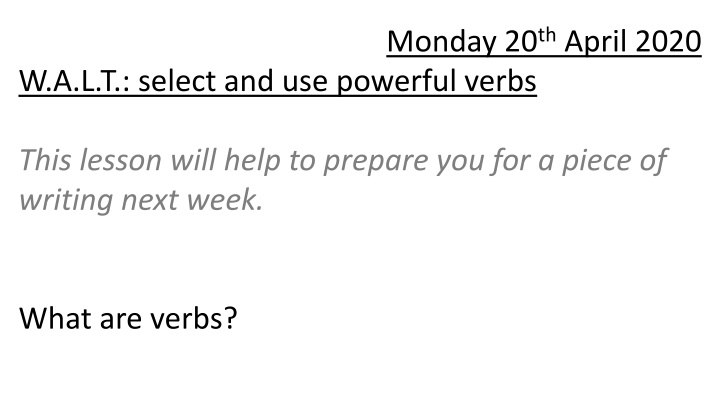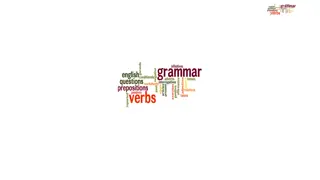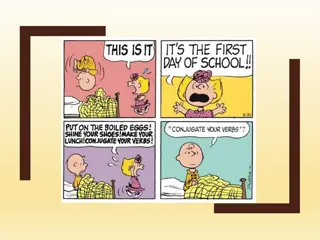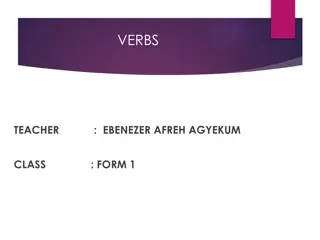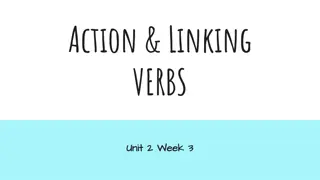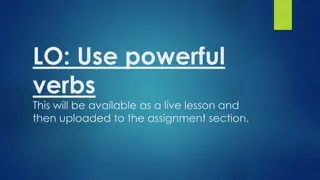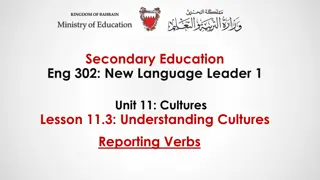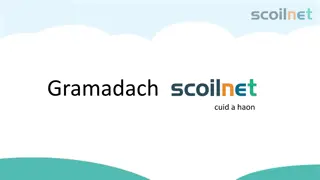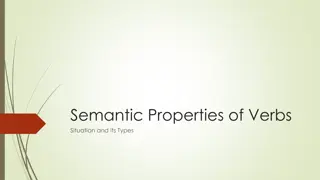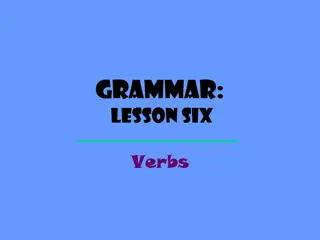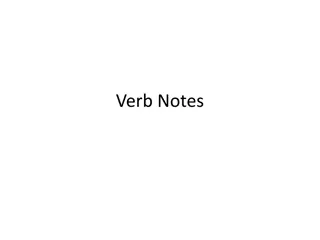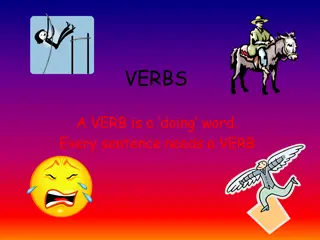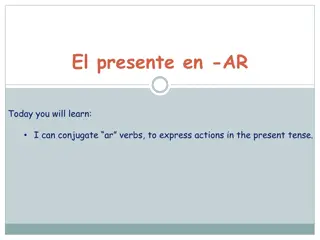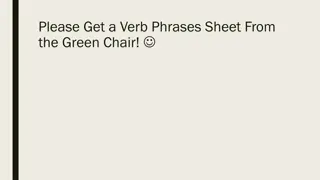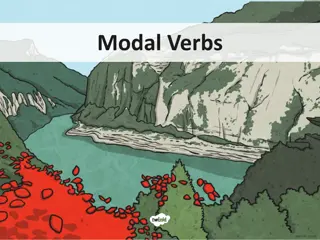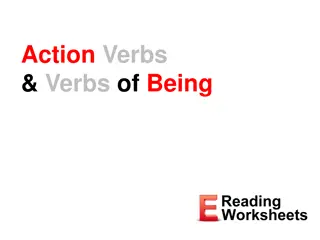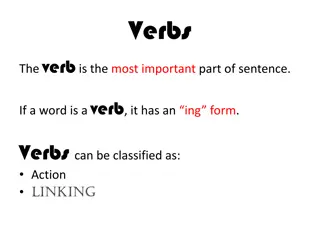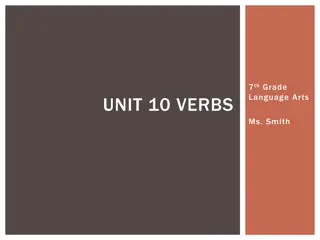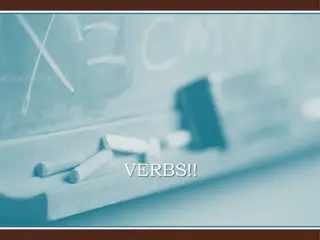Enhance Your Writing with Powerful Verbs
Explore the importance of powerful verbs in writing through examples and exercises in this lesson. Learn how replacing ordinary verbs with descriptive ones can create vivid imagery and engage readers. Practice selecting powerful verbs to elevate your writing skills and make your narratives come alive.
Download Presentation

Please find below an Image/Link to download the presentation.
The content on the website is provided AS IS for your information and personal use only. It may not be sold, licensed, or shared on other websites without obtaining consent from the author.If you encounter any issues during the download, it is possible that the publisher has removed the file from their server.
You are allowed to download the files provided on this website for personal or commercial use, subject to the condition that they are used lawfully. All files are the property of their respective owners.
The content on the website is provided AS IS for your information and personal use only. It may not be sold, licensed, or shared on other websites without obtaining consent from the author.
E N D
Presentation Transcript
Monday 20th April 2020 W.A.L.T.: select and use powerful verbs This lesson will help to prepare you for a piece of writing next week. What are verbs?
You might have said: They are a word class They are action/doing or being word They are essential for sentences and clauses They tell you the tense (when something happened or if it is still happening) They have a subject so you need subject verb agreement Anything else?
So, what is a powerful verb? A verb that is descriptive and exciting. Powerful verbs help to control what the reader thinks and imagines much more. We like to control people s thoughts! Let s look at an example
Sam said, Hello. Said is a really useful verb but it does not describe the manner in which Sam was speaking does it? Look what happens if we use a powerful verb
Sam whispered, Hello. Sam bellowed, Hello! Sam sniggered, Hello. Sam sobbed, Hello. Sam continued, Hello.
Sam screamed, Hello. Sam mumbled, Hello. Sam whispered, Hello. Sam beamed, Hello.
Can you see that by replacing said with a powerful verb you are creating different images in the reader s head. English is an amazing language because its vocabulary is so rich. As year 5 and 6 pupils you are expected to make choices about the words you use to make your writing have specific effects.
Your turn Replace these verbs with powerful ones. You need to aim for at least 3 and 6 is enough. A thesaurus can sometimes help. Choose a noun to replace the xxxx. 1. Jo saw a xxx. 2. They walked across the xxx. 3. We touched the xxx. Write them in your book.
Here are some possibilities: Jo saw a xxx. Jo spied a snake. Jo noticed a leak. Jo glimpsed an elf. Jo spotted a rare bird. Jo realised a possible answer. Jo observed a change in the bread.
They walked across the xxx. They teetered across the stepping stones. They marched across the parade yard. They waded across the river. They tiptoed across the snake-infested pit. They strode across the room to shake hands. They wobbled across the suspension bridge.
We touched the xxx. We felt the lumpy parcel. We fingered the precious jewel. We smoothedthe bird s feathers. We affected the hearts and minds of so many. We strokedthe horses necks. We prodded the tarantula!
How have you got on? Do you understand the effect of powerful verbs? We now want to use powerful verbs to write interesting sentences. We are going to use verb openers a fronted adverbial beginning with a verb
Here are some examples of using powerful verbs as fronted adverbial openers. Notice that the suffix ing is added to the verb and note the punctuation
Spotting a rare bird, the twitcher carefully raised her camera and started to snap away. Striding across the room, they shook hands, nodded and took their places to the right of the throne. Fingering the precious jewel, the impulse to pocket it and scarper was overwhelming!
In your English book, craft between 6 and 8 interesting sentences that begin with powerful verbs. You should then ask an adult to photograph or scan them and email them to me. I shall then mark them and give feedback. The two main aspects that I am looking for are: Powerful verbs used as openers Interesting sentences.
Non-negotiables (the things that you have to do -ALWAYS!) Underline the date, W.A.L.T. and title with a ruler. Use legible, joined handwriting Copy accurately Present neat, organised work Capital letters, full stops, question marks, commas for lists, apostrophes for contraction and possession correctly. Use the correct verb tense Spell all years 1 to 4 spellings correctly Spell most year 5-6 spellings correctly Correct use of homophones such as your/you re, no/know, to/too/two, there/their/they re, which/witch, where/wear/were/we re, are/our
